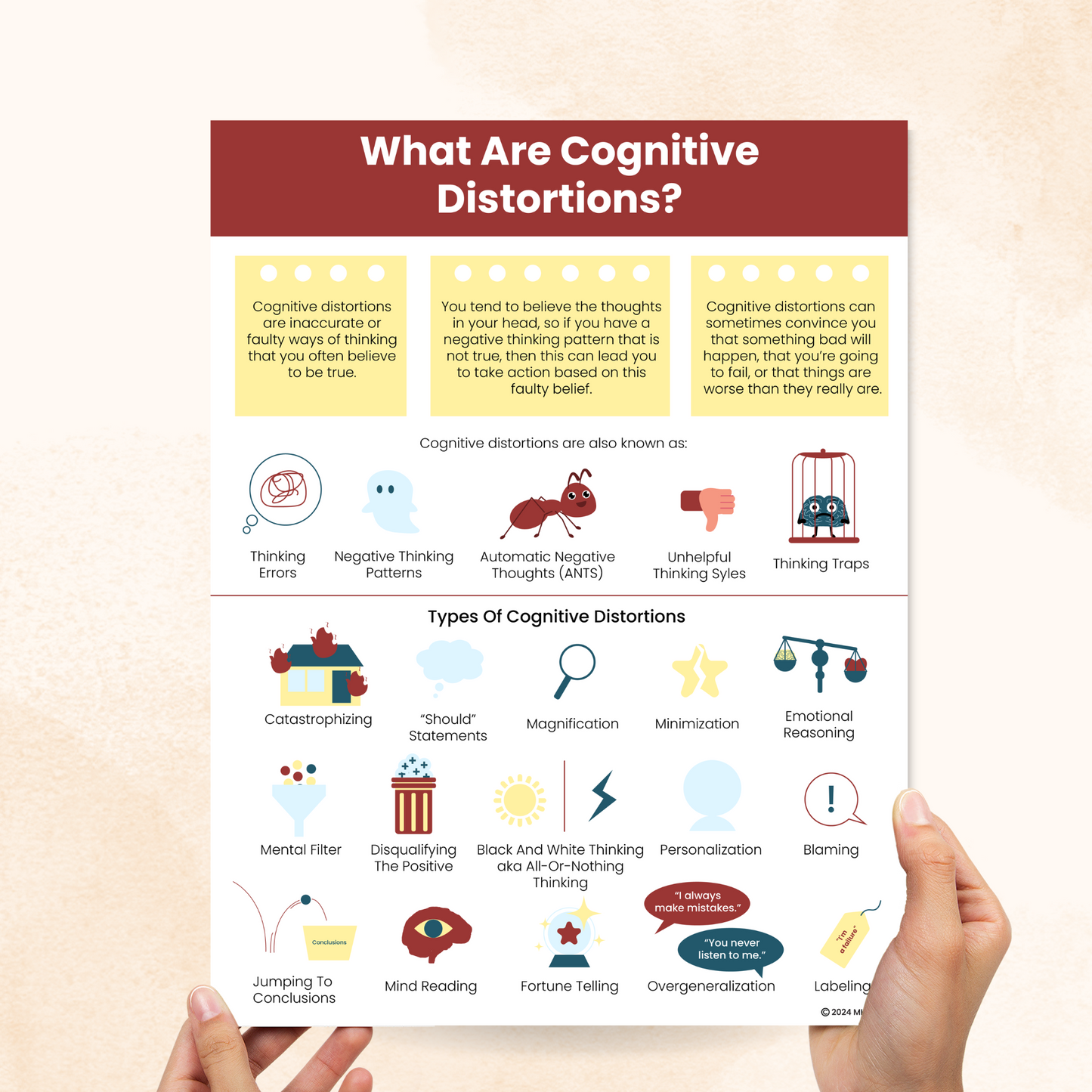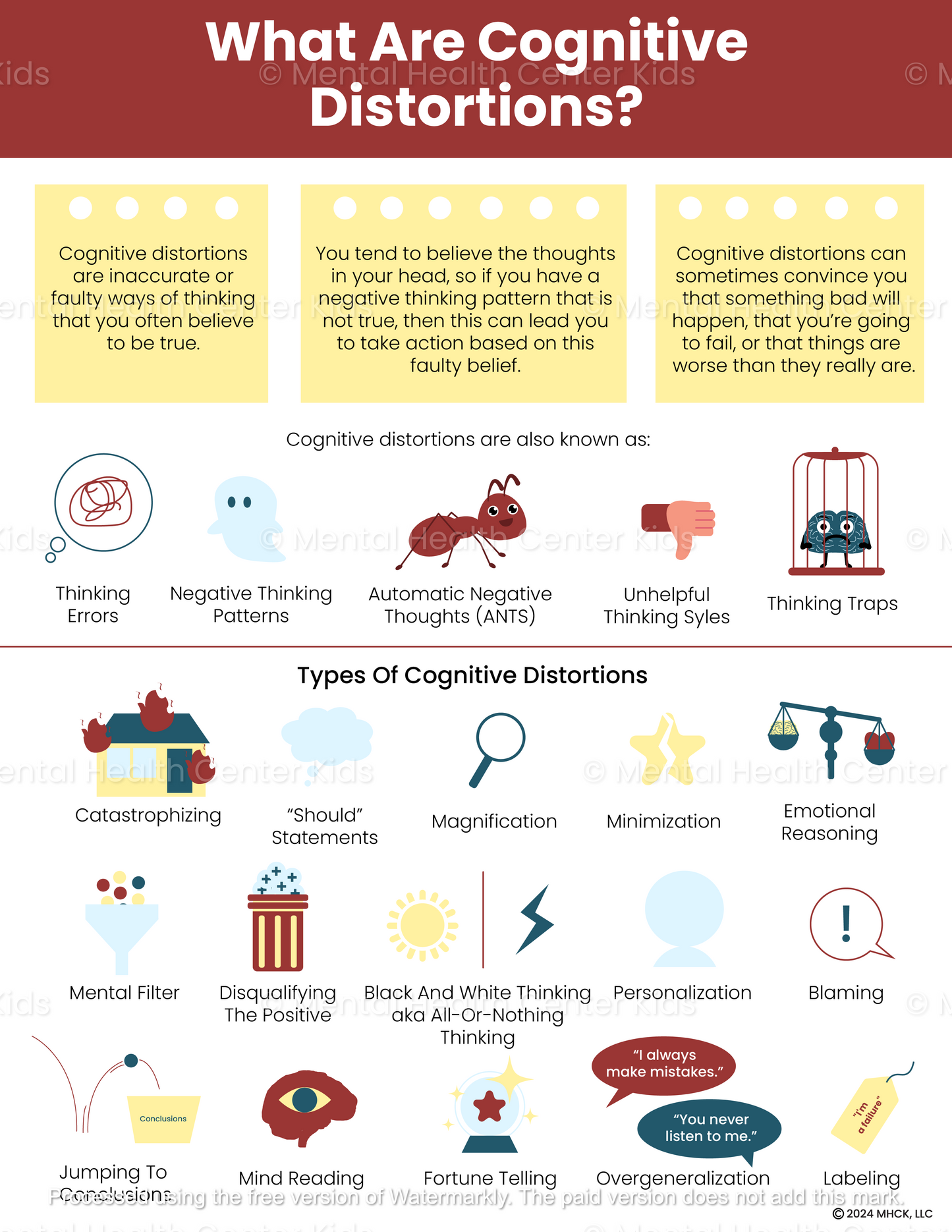What Are Cognitive Distortions? (PDF)



Cognitive distortions or thinking errors are habitual negative thinking patterns that aren’t based on fact or reality. Most people experience cognitive distortions from time to time, but if they’re reinforced long enough, they can lead to anxiety, behavioral problems, interpersonal conflict, and dysregulated emotions. The good news is that cognitive behavior therapy (CBT) is effective in helping people re-train themselves to look at the world in a clearer, more rational way.
The What Are Cognitive Distortions PDF handout defines these negative thought patterns and introduces 15 different types, such as catastrophizing, using “should” statements, and emotional reasoning. Our handout uses relevant icons that best represent each cognitive distortion for better understanding.
Using this handout helps kids and teens have an awareness of their thinking errors and pay attention to how they can reframe things in a healthy and positive manner. As a helpful tip, encourage kids to keep a record of their thoughts, emotions, and behaviors in different situations to increase their self-awareness.
For example, a student who procrastinates on a school assignment until the last minute and believes they’re a “bad person” may identify feeling overwhelmed as their trigger. Through this awareness, they can find ways to handle their trigger and overcome their cognitive distortion.
This handout is included in our CBT Handouts Bundle, along with full-page psychoeducation and tips to manage some of the most common cognitive distortions.
*This item is an instant digital download. A link to download your files will be emailed to you once payment is confirmed.
Want more resources like this? Check out our full catalog of CBT worksheets and handouts.
References:
- Chand, S. P., Kuckel, D. P., & Huecker, M. R. (2023, May 23). Cognitive Behavior Therapy. StatPearls - NCBI Bookshelf. https://www.ncbi.nlm.nih.gov/books/NBK470241/
- Panourgia, C., & Comoretto, A. (2017). Do cognitive distortions explain the longitudinal relationship between life adversity and emotional and behavioural problems in secondary school children? Stress and Health, 33(5), 590–599. https://doi.org/10.1002/smi.2743
- Instant digital download
- File: PDF
- Size: 8.5" x 11"




